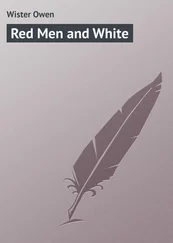Owen Wister - The Virginian
Здесь есть возможность читать онлайн «Owen Wister - The Virginian» весь текст электронной книги совершенно бесплатно (целиком полную версию без сокращений). В некоторых случаях можно слушать аудио, скачать через торрент в формате fb2 и присутствует краткое содержание. Жанр: Вестерн, на английском языке. Описание произведения, (предисловие) а так же отзывы посетителей доступны на портале библиотеки ЛибКат.
- Название:The Virginian
- Автор:
- Жанр:
- Год:неизвестен
- ISBN:нет данных
- Рейтинг книги:4 / 5. Голосов: 1
-
Избранное:Добавить в избранное
- Отзывы:
-
Ваша оценка:
- 80
- 1
- 2
- 3
- 4
- 5
The Virginian: краткое содержание, описание и аннотация
Предлагаем к чтению аннотацию, описание, краткое содержание или предисловие (зависит от того, что написал сам автор книги «The Virginian»). Если вы не нашли необходимую информацию о книге — напишите в комментариях, мы постараемся отыскать её.
The Virginian — читать онлайн бесплатно полную книгу (весь текст) целиком
Ниже представлен текст книги, разбитый по страницам. Система сохранения места последней прочитанной страницы, позволяет с удобством читать онлайн бесплатно книгу «The Virginian», без необходимости каждый раз заново искать на чём Вы остановились. Поставьте закладку, и сможете в любой момент перейти на страницу, на которой закончили чтение.
Интервал:
Закладка:
"He did the choosing," answered the Virginian. "Listen to me. Are you listening?" he asked, for her gaze was dull.
She nodded.
"I work hyeh. I belong hyeh. It's my life. If folks came to think I was a coward—"
"Who would think you were a coward?"
"Everybody. My friends would be sorry and ashamed, and my enemies would walk around saying they had always said so. I could not hold up my head again among enemies or friends."
"When it was explained—"
"There'd be nothing to explain. There'd just be the fact." He was nearly angry.
"There is a higher courage than fear of outside opinion," said the New England girl.
Her Southern lover looked at her. "Cert'nly there is. That's what I'm showing in going against yours."
"But if you know that you are brave, and if I know that you are brave, oh, my dear, my dear! what difference does the world make? How much higher courage to go your own course—"
"I am goin' my own course," he broke in. "Can't yu' see how it must be about a man? It's not for their benefit, friends or enemies, that I have got this thing to do. If any man happened to say I was a thief and I heard about it, would I let him go on spreadin' such a thing of me? Don't I owe my own honesty something better than that? Would I sit down in a corner rubbin' my honesty and whisperin' to it, 'There! there! I know you ain't a thief?' No, seh; not a little bit! What men say about my nature is not just merely an outside thing. For the fact that I let 'em keep on sayin' it is a proof I don't value my nature enough to shield it from their slander and give them their punishment. And that's being a poor sort of a jay."
She had grown very white.
"Can't yu' see how it must be about a man?" he repeated.
"I cannot," she answered, in a voice that scarcely seemed her own. "If I ought to, I cannot. To shed blood in cold blood. When I heard about that last fall, — about the killing of those cattle thieves, — I kept saying to myself: 'He had to do it. It was a public duty.' And lying sleepless I got used to Wyoming being different from Vermont. But this—" she gave a shudder—"when I think of to-morrow, of you and me, and of— If you do this, there can be no to-morrow for you and me."
At these words he also turned white.
"Do you mean—" he asked, and could go no farther.
Nor could she answer him, but turned her head away.
"This would be the end?" he asked.
Her head faintly moved to signify yes.
He stood still, his hand shaking a little. "Will you look at me and say that?" he murmured at length. She did not move. "Can you do it?" he said.
His sweetness made her turn, but could not pierce her frozen resolve. She gazed at him across the great distance of her despair.
"Then it is really so?" he said.
Her lips tried to form words, but failed.
He looked out of the window, and saw nothing but shadow. The blue of the mountains was now become a deep purple. Suddenly his hand closed hard.
"Good-by, then," he said.
At that word she was at his feet, clutching him. "For my sake," she begged him. "For my sake."
A tremble passed through his frame. She felt his legs shake as she held them, and, looking up, she saw that his eyes were closed with misery. Then he opened them, and in their steady look she read her answer. He unclasped her hands from holding him, and raised her to her feet.
"I have no right to kiss you any more," he said. And then, before his desire could break him down from this, he was gone, and she was alone.
She did not fall, or totter, but stood motionless. And next — it seemed a moment and it seemed eternity — she heard in the distance a shot, and then two shots. Out of the window she saw people beginning to run. At that she turned and fled to her room, and flung herself face downward upon the floor.
Trampas had departed into solitude from the saloon, leaving behind him his ULTIMATUM. His loud and public threat was town knowledge already, would very likely be county knowledge to-night. Riders would take it with them to entertain distant cabins up the river and down the river; and by dark the stage would go south with the news of it — and the news of its outcome. For everything would be over by dark. After five years, here was the end coming — coming before dark. Trampas had got up this morning with no such thought. It seemed very strange to look back upon the morning; it lay so distant, so irrevocable. And he thought of how he had eaten his breakfast. How would he eat his supper? For supper would come afterward. Some people were eating theirs now, with nothing like this before them. His heart ached and grew cold to think of them, easy and comfortable with plates and cups of coffee.
He looked at the mountains, and saw the sun above their ridges, and the shadow coming from their feet. And there close behind him was the morning he could never go back to. He could see it clearly; his thoughts reached out like arms to touch it once more, and be in it again. The night that was coming he could not see, and his eyes and his thoughts shrank from it. He had given his enemy until sundown. He could not trace the path which had led him to this. He remembered their first meeting — five years back, in Medicine Bow, and the words which at once began his hate. No, it was before any words; it was the encounter of their eyes. For out of the eyes of every stranger looks either a friend or an enemy, waiting to be known. But how had five years of hate come to play him such a trick, suddenly, to-day? Since last autumn he had meant sometime to get even with this man who seemed to stand at every turn of his crookedness, and rob him of his spoils. But how had he come to choose such a way of getting even as this, face to face? He knew many better ways; and now his own rash proclamation had trapped him. His words were like doors shutting him in to perform his threat to the letter, with witnesses at hand to see that he did so.
Trampas looked at the sun and the shadow again. He had till sundown. The heart inside him was turning it round in this opposite way: it was to HIMSELF that in his rage he had given this lessening margin of grace. But he dared not leave town in all the world's sight after all the world had heard him. Even his friends would fall from him after such an act. Could he — the thought actually came to him — could he strike before the time set? But the thought was useless. Even if his friends could harbor him after such a deed, his enemies would find him, and his life would be forfeit to a certainty. His own trap was closing upon him.
He came upon the main street, and saw some distance off the Virginian standing in talk with the bishop. He slunk between two houses, and cursed both of them. The sight had been good for him, bringing some warmth of rage back to his desperate heart. And he went into a place and drank some whiskey.
"In your shoes," said the barkeeper, "I'd be afraid to take so much."
But the nerves of Trampas were almost beyond the reach of intoxication, and he swallowed some more, and went out again. Presently he fell in with some of his brothers in cattle stealing, and walked along with them for a little.
"Well, it will not be long now," they said to him. And he had never heard words so desolate.
"No," he made out to say; "soon now." Their cheerfulness seemed unearthly to him, and his heart almost broke beneath it.
"We'll have one to your success," they suggested.
So with them he repaired to another place; and the sight of a man leaning against the bar made him start so that they noticed him. Then he saw that the man was a stranger whom he had never laid eyes on till now.
"It looked like Shorty," he said, and could have bitten his tongue off.
"Shorty is quiet up in the Tetons," said a friend. "You don't want to be thinking about him. Here's how!"
Читать дальшеИнтервал:
Закладка:
Похожие книги на «The Virginian»
Представляем Вашему вниманию похожие книги на «The Virginian» списком для выбора. Мы отобрали схожую по названию и смыслу литературу в надежде предоставить читателям больше вариантов отыскать новые, интересные, ещё непрочитанные произведения.
Обсуждение, отзывы о книге «The Virginian» и просто собственные мнения читателей. Оставьте ваши комментарии, напишите, что Вы думаете о произведении, его смысле или главных героях. Укажите что конкретно понравилось, а что нет, и почему Вы так считаете.










